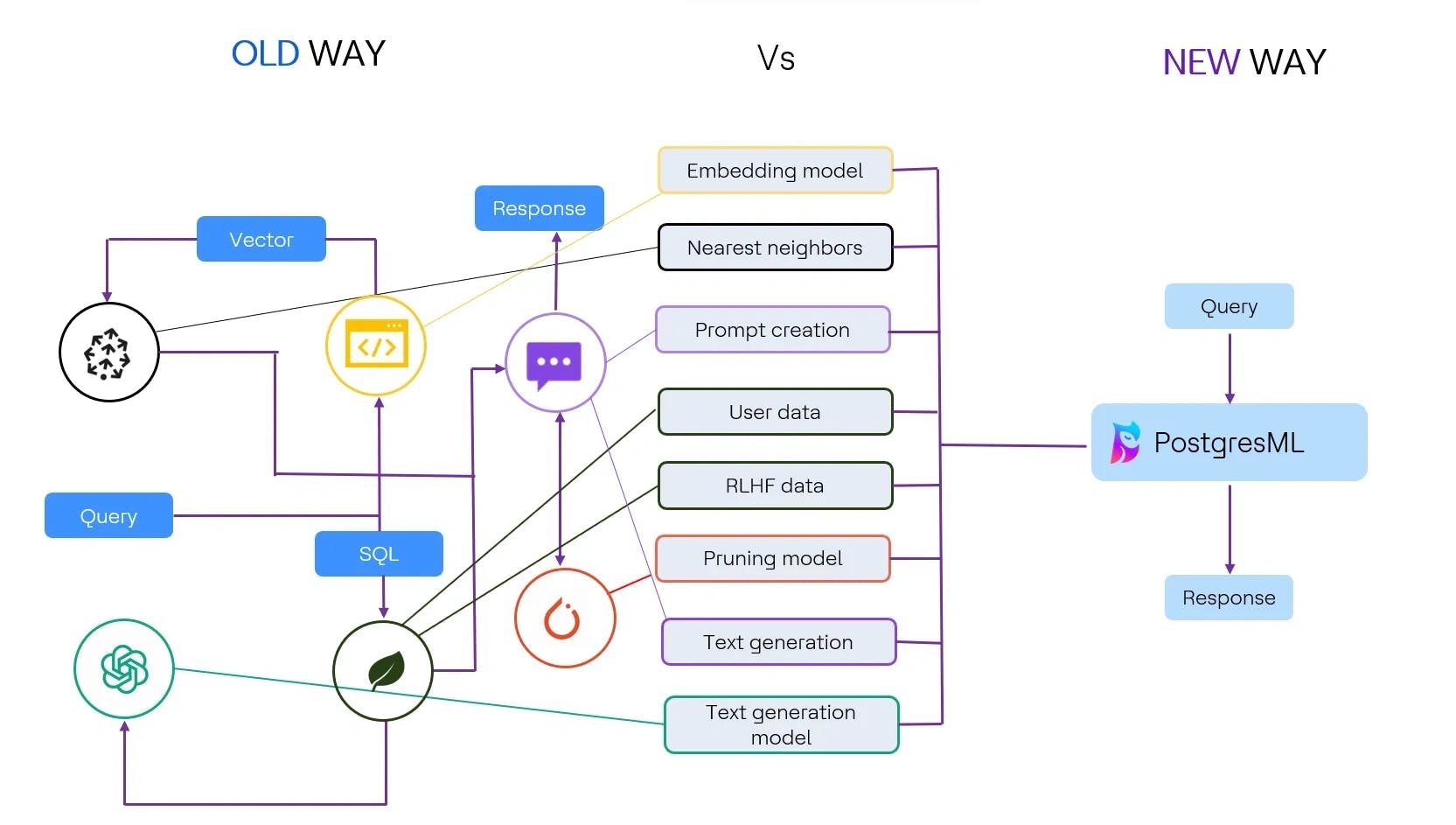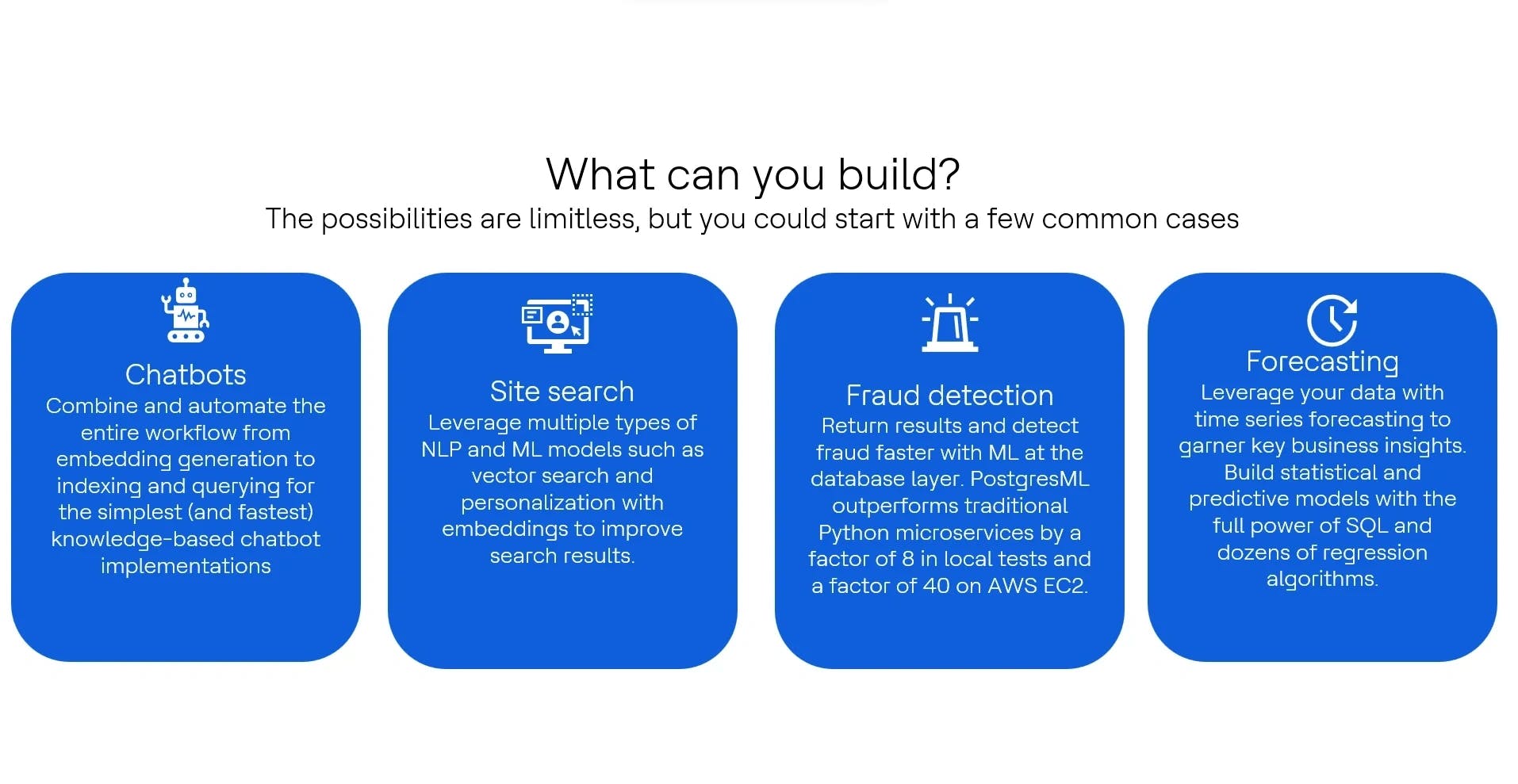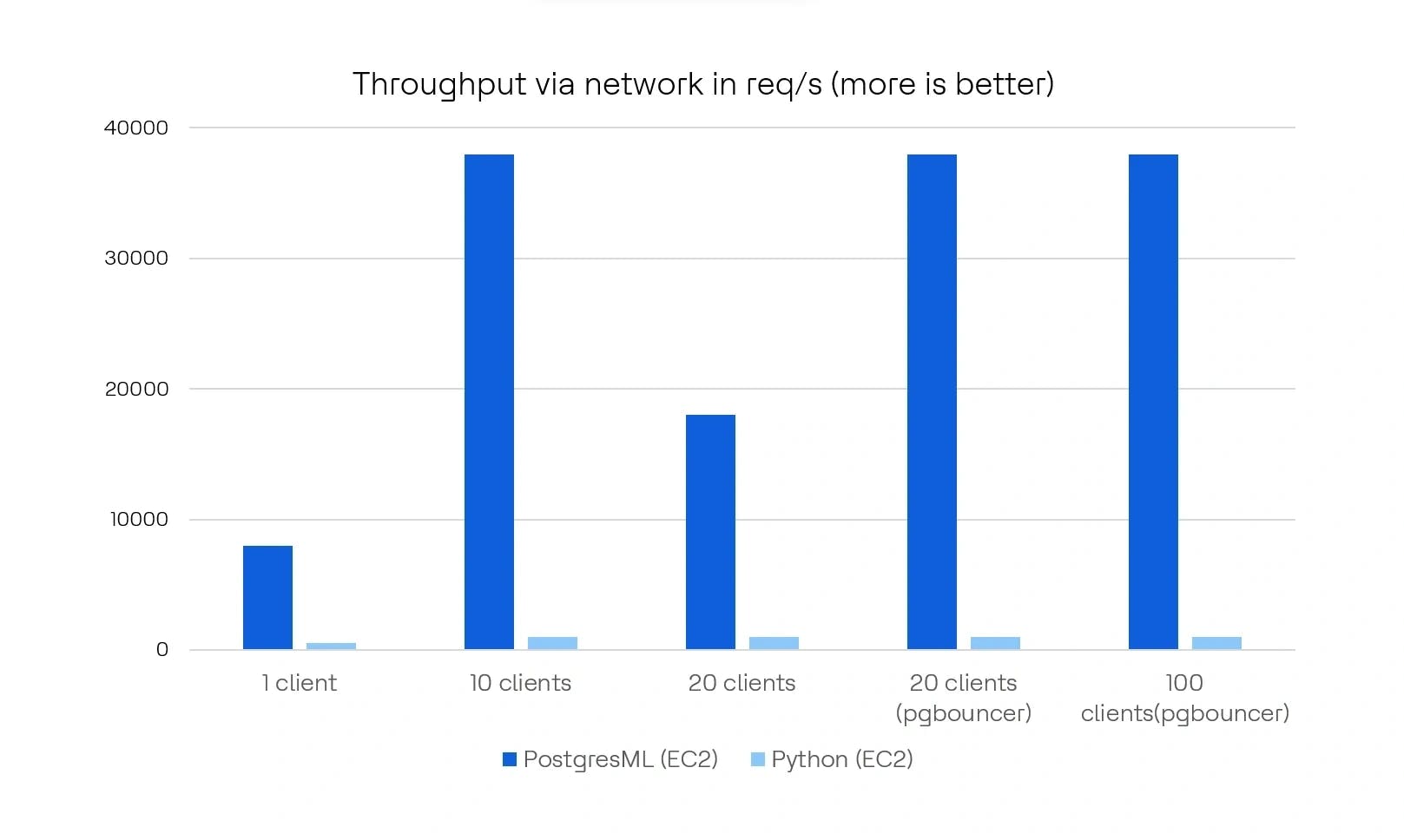Introduction:
Integrating ML capabilities directly into database management systems has emerged as a game changer in the ever-evolving landscape of data analysis and ML. PostgresML, a cutting-edge extension to the PostgreSQL database, revolutionizes data analysis by empowering database administrators and data scientists to perform ML tasks seamlessly within the familiar and powerful PostgreSQL environment. 
What is PostgresML?
PostgresML is an advanced extension that brings the power of ML algorithms to PostgreSQL. It enables data scientists and business analysts to leverage PostgreSQL’s robust infrastructure and data management capabilities for their ML projects. It provides a comprehensive set of functions and data types for ML tasks.
Key features and benefits:
- Native integration: PostgresML integrates seamlessly with PostgreSQL, enabling users to perform ML operations directly within the database. This eliminates the need for external tools or complex data movement.
- Extensive algorithm support: PostgresML offers a wide range of ML algorithms, including linear regression, logistic regression, decision trees, random forests and many more. These algorithms cover a broad spectrum of ML tasks, from classification and regression to anomaly detection and time series forecasting.
- Data type support: PostgresML introduces specialized data types designed explicitly for ML, such as vectors and matrices, facilitating efficient storage and manipulation of ML data.
- Model persistence and reusability: PostgresML enables the persistent storage of ML models within the database, ensuring their availability for future use and seamless integration into production systems.
- Extensibility and customization: PostgresML offers extensive extensibility options, facilitating users' development of custom functions and operators, integration with external libraries and creation of their own ML algorithms, fostering innovation and flexibility.
Applications and use cases:

- Predictive analytics: PostgresML can be utilized for predictive analytics, allowing businesses to uncover patterns in historical data to make informed decisions about future outcomes, such as predicting customer churn or detecting fraud
- Recommendation systems: PostgresML enables the creation of recommendation engines that provide personalized recommendations to users based on their past preferences and behavior, enhancing customer engagement and satisfaction
- Anomaly detection: PostgresML’s anomaly detection capabilities allow businesses to identify unusual or unexpected patterns in data, facilitating proactive monitoring and rapid response to potential issues or opportunities
- Time series forecasting: Businesses can leverage PostgresML to forecast future trends and patterns based on historical time series data, aiding in demand planning, inventory management and resource allocation
- Sentiment analysis: PostgresML can be employed for sentiment analysis, enabling businesses to gauge customer sentiment and emotions expressed in text data, such as social media comments or customer reviews
Conclusion:
PostgresML has transformed data analysis by seamlessly integrating ML capabilities into the PostgreSQL database. With native algorithm support, specialized data types, declarative syntax and real-time scoring, PostgresML empowers data scientists and businesses to perform ML tasks efficiently within a familiar PostgreSQL environment. Its robust extensibility options encourage innovation and customization, making it an ideal choice for various ML applications and use cases.




